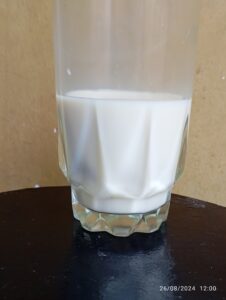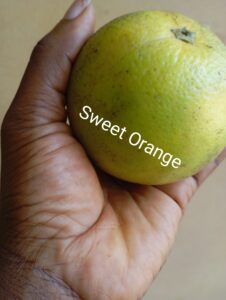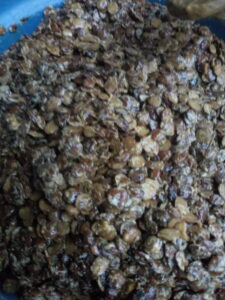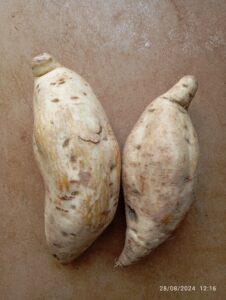Infertility: A Growing Concern.
Low fertility or infertility affects about 12% of couples globally, affecting millions of people and making it a significant public health concern. According to the World Health Organization (WHO), infertility is defined as the inability to conceive after 12 months or more of regular, unprotected sex.
So many factors contribute to infertility such as: Age, Hormonal imbalances, Lifestyle choices (diet, exercise, stress), Medical conditions (PCOS (Polycystic Ovary Syndrome), endometriosis, low sperm count), Environmental factors (exposure to toxins).
When it comes to fertility, a healthy diet plays a crucial role. Consuming the right foods in the right proportion can improve overall reproductive health. In this article, we’ll explore the top foods to boost fertility in women, helping you optimize your diet for a healthy pregnancy.
The Role of Diet in Fertility
A healthy diet plays a crucial role in supporting fertility. A well-nourished body:
- Regulates hormones and ovulation
- Maintains a healthy weight, reducing the risk of infertility
- Provides essential nutrients for fetal development during pregnancy.
Foods sources best for Fertility
1. Antioxidant Rich Foods
What are antioxidants? These are molecules that neutralize free radicals, unstable molecules that can damage cells and contribute to aging and disease.
How do antioxidants impact fertility?
- Consuming food sources rich in antioxidants may help protect eggs and reduce the risk of miscarriage. Some studies suggested that antioxidants may help to reduce the risk of miscarriage by protecting the embryo from oxidative stress.
- They help regulate hormones, including those involved in ovulation, thereby preparing the womb for fertilization.
- Antioxidants Reduced inflammation and oxidative stress in the reproductive tract, promoting a healthy environment for conception.
- Support embryo development.
- Antioxidants may help to prepare the uterine lining for implantation. Source: (3).
- Examples of Antioxidant rich foods
- Berries (blueberries, raspberries, strawberries)
- Leafy greens (spinach, kale, collard greens, fluted pumpkin leaf)
- Nuts and seeds (almonds, sunflower seeds, pumpkin seeds, cashew nuts, walnuts, Tiger Nuts)
- Fatty fish (salmon, tuna, mackerel)
- Sweet potatoes
Antioxidant rich food - Avocados
- Legumes (lentils, chickpeas, black beans)
- Whole grains (brown rice, quinoa, whole wheat).
2. Omega-3 fatty acids rich foods
Omega-3 fatty acids are a group of essential polyunsaturated fats that cannot be produced by the human body and must be obtained through diet or supplements. They are divided into:
1. EPA (Eicosapentaenoic Acid)
2. DHA (Docosahexaenoic Acid)
3. ALA (Alpha-linolenic Acid)
Based on current research, DHA is considered the most beneficial Omega-3 for fertility in women due to its:
- Essential role in fetal development during pregnancy
- Support for hormone production and regulation.
However, it’s important to note that a balanced intake of all three types, particularly EPA and DHA, is recommended for overall reproductive health and fertility.
Benefits Omega 3s for Women’s Fertility
1. Improved egg quality: Omega-3s, particularly DHA, enhance egg membrane fluidity and quality. Source.
2. Increased fertility rates: Omega-3 supplementation has been shown to improve fertility rates in women. Source.
3. Reduced inflammation: Omega-3s’ anti-inflammatory properties help reduce oxidative stress, promoting a healthy reproductive.
4. Hormone regulation: Omega-3s support hormone production and regulation, essential for ovulation and menstrual cycle health.
5. Fetal development: DHA is vital for fetal development during pregnancy, supporting the growth of the brain, eyes, and nervous system. Source .
Recommended Intake for Women of childbearing age:
Aim for 500-1000 mg: Combine EPA and DHA intake from food sources and supplements.
DHA is primarily found in:
– Fatty fish (salmon, sardines, anchovies)
– Algal oil supplements
– Fortified foods (eggs, yogurt, milk).

3. Folate Rich Foods
Folate, also known as vitamin B9, plays a crucial role in women’s fertility. According to some studies, it helps to:
- Regulates ovulation and menstrual cycles.
- Folate helps prevent birth defects, such as neural tube defects (NTDs) in the developing fetus during pregnancy.
- It helps the fertilized egg implant in the uterus.
- Adequate folate levels may reduce the risk of miscarriage.
- Folate may help improve egg quality, increasing the chances of conception.
- It is involved in the regulation of hormones, including estrogen and progesterone, which are essential for fertility. Source.
Recommended daily intake of folate for women, according to U.S. National Institutes of Health (NIH):
400-800 mcg (micrograms) per day for women of childbearing age.
Food sources of folate
– Dark leafy greens (spinach, kale)
– Legumes (lentils, chickpeas)
– Citrus fruits (oranges, grapefruits)

– Fortified cereals.
4. Vitamin D Rich Foods
This is a fat-soluble vitamin that plays a crucial role in various bodily functions.
Vitamin D Supports hormone regulation, ovulation, and fetal development.
Food sources of vitamin D
- Fatty fish (salmon, mackerel, sardines)
2. Fortified dairy products
3. Mushrooms
4. Egg yolks
5. Sunlight exposure (stimulates vitamin D production in the skin.
5. Probiotics Rich Foods
Probiotics are live microorganisms (bacteria or yeast) that are similar to the beneficial microorganisms found in the human body. When taken in adequate amounts, they confer benefits in women’s reproductive health by:
- Hormone regulation: Probiotics help maintain a healthy gut microbiome, which supports hormone balance and regulation.
- Ovulation support
- Probiotics promote a healthy uterine environment, supporting implantation and fetal development.
- The anti-inflammatory properties of probiotics may improve fertility outcomes.
Beneficial probiotic strains for women’s fertility:
Lactobacillus acidophilus
Bifidobacterium bifidum
Streptococcus thermophilus
Bacillus coagulans
Saccharomyces boulardii. Source
Food sources of probiotics:
- Yogurt (with live cultures)
- Ugba (oil bean)
- Kefir
- Sauerkraut
- Kimchi
- Ogi (pap)
- Kunu
- Pito

Additional tip to improve women fertility
Here are some additional fertility-boosting tips to complement your diet:
- Stay Hydrated
- Exercise Regularly
- Manage Stress
- Get Enough Sleep
- Limit Caffeine and Alcohol intake
- Avoid Smoking and Recreational Drugs
- Maintain a Healthy Weight
- Consider Supplements
- Track Your Cycle
- Seek Professional Guidance.
Bottom line
while a healthy diet alone cannot guarantee fertility, it’s a critical component of overall reproductive health.
Remember, a healthy diet is just one aspect of fertility. Regular exercise, stress management, healthy lifestyle choices, and medical care (if needed) also play crucial roles in supporting reproductive health. Are you now prepared to meet your offspring 😊?.
References
Centers for Disease Control and Prevention. (n.d.). Infertility. Retrieved from https://www.cdc.gov/reproductivehealth/infertility/.
(2) World Health Organization. (2016). World Health Statistics, 2016: Monitoring health for the SDGs, sustainable development goals. Retrieved from, https://apps.who.int/iris/handle/10665/25461.
3. J. M. Kali. (2010). The role of antioxidants in prevention of male infertility. Therapeutics and Clinical Risk Management, 6(1), 31-39, https://www.ncbi.nlm.nih.gov/pmc/articles/PMC2927910/.
4. American College of Obstetricians and Gynecologists (ACOG)
5. National Institutes of Health (NIH)
6. American Society for Reproductive Medicine (ASRM).





